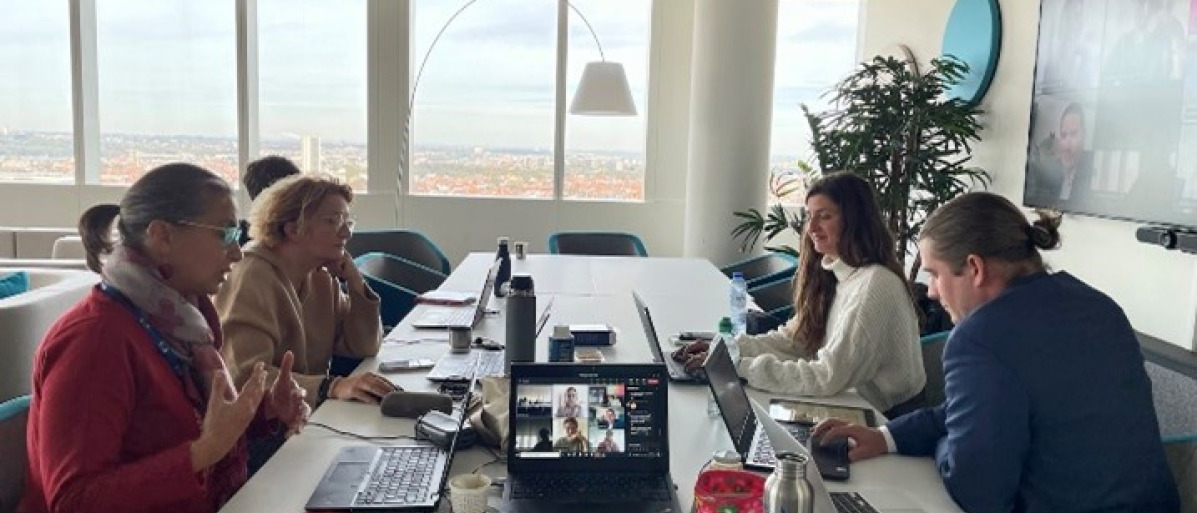
A systemic sustainability transformation requires elementary shifts in varied areas of society. A very persistent want for change lies within the organisational buildings of political administration and decision-making. Right here, most of the prevailing buildings stem from somewhat conventional mindsets which can be ill-suited to the complicated, interconnected crises and challenges dealing with societies right now. Conventional administrative buildings lack resilience and adaptableness, significantly as most of the individuals working inside these buildings undergo from extreme workloads and are pissed off by what they expertise as a scarcity of company. That is mirrored by rising charges of burnout and different poor well being outcomes.
Towards this background, one vital curiosity of the analysis group TranS-Thoughts (Transformative Areas and Mindsets) lies within the exploration and fostering of processes and buildings that permit people and teams of individuals to take transformative motion in a wholesome surroundings. Just lately, the TranS-Thoughts workforce had the chance to find out about new and revolutionary approaches throughout the European Fee (EC) that intention to deal with these points.
Valerie Voggenreiter and Antonella Tarallo, from the Company Organisational Change Unit (HR Unit A3) of the Directorate-Common for Human Sources and Safety (DG HR) recognized overlaps of their understanding of transformation. This opened a window of alternative for mutual studying and inspiration between TranS-Thoughts and the HR Unit A3. We have been to be taught that the Data Administration Steering Board of the European Fee just lately established the Centre for Organisational Transformation (Centre): a workforce of roughly 35 members of workers (coverage officers and scientists) from totally different departments of the EC, comparable to DG HR, the Joint Analysis Centre (JRC), the IT division, the Secretariat-Common and the Directorate-Common for Communications Networks, Content material and Expertise. It was set as much as assist the EC in reworking its work practices by adopting participatory management strategies, for instance. Extra particularly, the Centre gives:
• Consultancy, strategic recommendation, and assist on transformation processes and collaboration
• Capability constructing and serving to colleagues embrace extra collaborative and versatile methods of working.
• Coordination of the Collaboration Hub, a neighborhood of apply for organizational transformation.
• Scientific recommendation on data sharing, collaboration and new methods of working.
• Establishing strategic partnerships with different our bodies inside and out of doors the EC.
In October, Felix Beyers, Thomas Bruhn, and Valerie Voggenreiter visited the colleagues from DG HR in Brussels to raised perceive the Centre’s work and discover potentials for additional collaboration.
We have been in a position to take part in a collection of standard conferences, together with a workforce reflection and a gathering of the administration board of DG HR. This allowed us to dive deeper into the inner logic and construction of the establishment. We have now perceived many frequent areas of curiosity in addition to resonances in relation to our analysis curiosity in participatory codecs and dialogue. Participatory management practices and rules have been used for many years throughout the EC to push organizational boundaries from top-down selections in direction of fostering extra built-in outcomes.
Moreover, a major overlap was a deep concern for the individuals in our respective work environments, who carry out their duties with nice dedication inside excessive strain, hierarchical, solution- and result-oriented buildings. Equally, just like the TranS-Thoughts workforce, the Centre aspires to assist colleagues by facilitating change from inside, e.g., by means of communities of apply, designing participatory management seminars and the usage of co-creative strategies in addition to their scientific curiosity concerning what which means for larger impression. We discovered that our colleagues on the EC face related challenges and questions: How can the stress between structural strain and the pursuit of inventive freedom turn into a useful resource for constructive change? Which buildings allow or forestall profound change and might realistically be shifted from inside? Which components of the “previous” construction can probably even be let go of? Which different components have to be re-invited in return? How a lot transformative motion is feasible “from inside” and to what extent is it essential to contain reflective companions from exterior to beat one’s personal biases? And who can take the danger and accountability for these adjustments and “legitimise” or “mandate” new and maybe experimental approaches?
Each establishments try for organizational transformation and thereby promote inner and exterior collaboration and partnerships. Each are delicate to making a significant and wholesome work surroundings, contemplating management personalities, roles, and workers tradition. Nonetheless, each want to interrupt up or push in opposition to long-standing inflexible organizational buildings. For instance, the Centre’s give attention to participatory management practices and rules stems from particular selections by Fee leaders who’ve taken the danger to check out now pathways and require broader workers acceptance for organizational shifts. Institutionalizing such transformative rules subsequently requires context sensitivity and long-term dedication. That is difficult in apply, particularly as contextual circumstances change (e.g., after the European elections in June 2024). However, the prevailing experiments are already constructing transformative capability and supply many insights for different who transfer in direction of related instructions.
We’re grateful and impressed by the insights and experiences we have been in a position to achieve and impressed by the efforts that we witnessed throughout the EC. Trans-Thoughts and the Centre for Organisational Transformation try to create respiration areas in-between present organisational buildings, acknowledging the worth of (inner and exterior) reflection to additional develop our affect on desired transformation processes. Collectively, we explored the stability between pleasure and strain, science and apply, and the significance of resilience and adaptableness on this endeavour. Actually, we are going to proceed to discover what subsequent steps can emerge for our groups and establishments in our transdisciplinary collaboration and partnership.
Trending Merchandise







